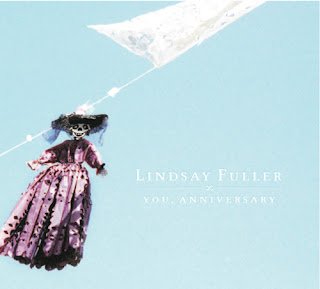fin
John Talabot
Permanent Vacation
Records.
SCQ Rating: 80%
Blame it on a
hyperbole-dependent press or my own winter-sick reluctance but I wasn’t overly
keen on hearing a record that evokes the “kind of bliss associated with dancing
on Mediterranean beaches at the height of summer” (The Guardian). At
least not during a Canadian February. John Talabot’s fin, a full-length that
had been anticipated in some circles – and not just Mediterranean ones – for
nearly four years, didn’t need patience in my case so much as adrenaline, which
aligned when fin became my album-of-choice while running the local gym’s track.
Tempo, the lead
criteria by which I’d first chosen the disc, gave Talabot all of the fuel he
needed to shake my slight expectations. Although still certainly a dance record
full of rhythm and slick dynamics, fin graduates to the realm of capital-A
Album status on the heels of its opening trifecta alone. The dense jungle that
inhabits “Depak Ine”, the tropics-inflected groove of “Destiny” and an ambient
head-spin known as “El Oeste” provide more than enough flexibility to ensure
that fin becomes notorious for far greater accomplishments than a heavy BPM
index. Through pop-leaning vocal tracks like “Journeys”, in which contributor
Ekhi calls to mind Panda Bear’s role on Pantha du Prince’s Black Noise, and
instrumental dance cuts like “H.O.R.S.E.”, Talabot’s meticulous
sound-environment tends to inform the beat (instead of the other way around).
Given that a few of
these songs were available as singles in advance of the full-length, it’s
expected that some tracks give up their mystique easier than others. “Last
Land” hits the nerve of its main hook early and rides it longer than necessary,
whereas the compacted “Estiu” could’ve thrived off of its slippery bass figure
for a few minutes more. That said, any learning curve detectable on fin feels
theoretical at best, since each track operates facets of the same exotic and
nocturnal mood, thereby making it easy to overlook a passable dance track in
favour of sprinting through Talabot’s whole set. If “So Will Be Now…”, the
concluding collaboration with Pional that challenges every other dance track
this year, can be heard as the hands-in-the-air finish line, fin represents the
shadowy, sensual journey that got us there.










